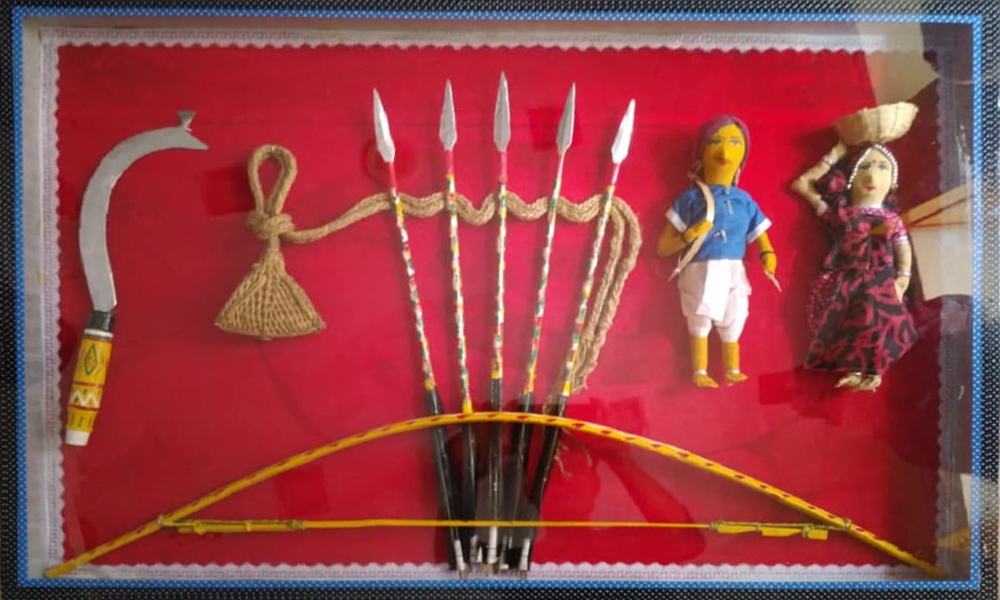
Image Credits: News18
Madhya Pradesh: 'Adivasi Gudiya' From Jhabua Communities To Receive Global Recognition
Writer: Devyani Madaik
A media enthusiast, Devyani believes in learning on the job and there is nothing off limits when it comes to work. Writing is her passion and she is always ready for a debate as well.
Madhya Pradesh, 7 March 2021 11:20 AM GMT
Editor : Rakshitha R |
Rakshitha an engineer turned passionate journalist with an inclination for poetry, creative writing, movies, fiction, mountains and seclusion. Not a part of the social process but existential.
Creatives : Abhishek M
" An engineer by profession, Abhishek is the creative producer of the team, graphic designing is his passion and travelling his get away. In more ways than one, he makes the content visually appealing."
The tribal doll is in the list of top 53 products of the tribal region promoted for the GI tagging by the Tribal Co-operative Marketing Development Federation (TRIFED), which functions under the Tribal Affairs ministry.
The backward communities of Madhya Pradesh's Jhabua district will soon get global recognition for preserving their ethnic art form. The Bhil and Bhilala communities have been making 'Adivasi Gudiya Hastshilp' (tribal dolls) out of cloth, cotton and iron wires for decades.
The art form is now being considered for the prestigious Geographical Indication (GI) tag, which will help earn the indigenous community global recognition and safeguard its intellectual property rights, reported News18.
The art form is an assimilation of Rajasthani puppet-making and Gujarat's ethnic art of beads and jewellery.
They have sharp facial features, kohled eyes, traditional bindis and heavy ethnic wear, along with traditional weapons, including bows, arrows and sickles, ethnic musical instruments like dholak and traditional transportation like bullock carts. These are most famous in the local Bhagoria festival and are quite popular among buyers.
A private enterprise, Shakti Emporium, owned by late Uddhav Gidwani, has been producing these handmade artworks for the last 35 years. The centre has trained more than 500 women and has employed dozens of women permanently to make these artefacts.
While the centre has closed down, the private emporium continues to produce and sell the dolls.
"The tag will not only bring fame for this product but also generate job opportunities for the tribals. A pair of dolls are approximately priced ₹350, while the rest depends upon the shape and size of the product," Gidwani's son Subhas told the media.
The tribal doll is in the list of top 53 products of the tribal region promoted for the GI tagging by the Tribal Co-operative Marketing Development Federation (TRIFED), which functions under the Tribal Affairs ministry.
The government has also contributed to promoting ethnic art form by exhibiting them across the country, including Delhi's Pragati Maidan, Jaipur, Khajuraho, Hyderabad, Rohtak, Bengaluru, Kolkata, Raipur, Chandigarh and so forth.
Also Read: 'Planting For Future': Tamil Nadu Bus Conductor Plants 3 Lakh Sapling In 30 Years, Wins Hearts
 All section
All section














